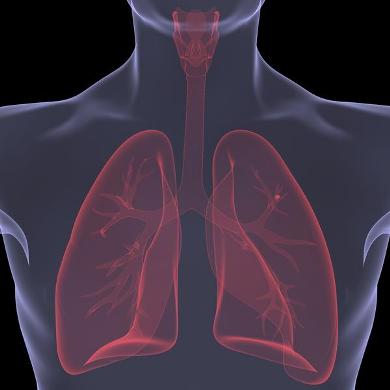Pulmonary Emphysema: Symptoms, Causes and Treatment
The pulmonary emphysema is a disease that in general terms, can be defined as that which occurs when the alveoli (tiny air sacs containing the lungs) stop, gradually working properly making it difficult to breath.
As it worsens the emphysema, the air sacs are destroyed to become irregular operation and alveolar lesions in the alveolar walls, which, among other consequences, reduces the amount of oxygen that can reach into the blood and shortness of breath.
Pulmonary emphysema is a type of obstructive lung disease. What are the symptoms that reveal it? What are the most common causes of its appearance?
Table of Contents
Symptoms of Pulmonary Emphysema
Symptoms of pulmonary emphysema are not always obvious. In fact, in some cases it may be asymptomatic. Overall, the most characteristic symptoms are shortness of breath, which worsens over time, tachycardia, cough or changing the tone of lips and nails (blue or gray).
Read Also: Acute and chronic heart failure: Causes, symptoms and treatments
Causes of Pulmonary Emphysema
The main cause of pulmonary emphysema is the snuff, especially among those aged between 40 and 60. To this we must add the exposure to other substances that irritate the airways, such as contaminants in the air, coal and silica dust.
In other cases, although the least, pulmonary emphysema is inherited, in particular by an anomaly which results in lack of a protein that protects the lungs.
Diagnosis of Pulmonary Emphysema
To do a checkup is important for any health problem, including this one. Similarly, should consult a doctor if you notice any of these symptoms more frequently of the due. The doctor will make a diagnosis after analyzing the symptoms, assess the results of blood tests and specific tests, for example, spirometry, chest X-rays and CT scans.
It is important to start treatment as soon as possible to avoid a worsening of the disease or complications, such as the collapse of the lungs and heart disease.
Treatment For Pulmonary Emphysema
Treatment for pulmonary emphysema can stop the progression of the disease and relieve symptoms, but cannot get rid of the already present injuries.
You may be prescribed medications to quit smoking (bupropion hydrochloride and varenicline), bronchodilators to relieve and antibiotics for cough and shortness of breath in case of bacterial infections, such as pneumonia or acute bronchitis.
It is essential to follow the treatment prescribed by the doctor correctly (dose, duration …) because otherwise it will not be effective, and overall to know the possible side effects that may have the medicines.
Other solutions that can complement drug therapy include exercises and breathing techniques. In severe cases of pulmonary emphysema it may be necessary to resort to surgery to reduce lung volume (by removing diseased or damaged parts) or to do a lung transplant.
Finally, in addition to avoiding the risk factors mentioned above (in particular, snuff) have to be physically active on a regular basis to improve lung capacity.
